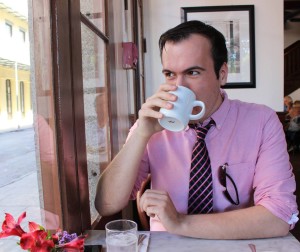On Dec. 14 – in the midst of finals season at Case Western Reserve University – students gathered around television screens instead of textbooks. They watched in horror as live media coverage reported the deaths of 20 children and 6 adults in a shooting at Sandy Hook Elementary school in Newtown, Conn.
In the weeks following the tragedy, emotions soon moved from sadness to rage as supporters and critics of tighter gun control laws began drawing lines in the sand, voicing their beliefs about how future massacres could be avoided.
For one side guns are the answer; for the other guns are the problem.
* * *
Two weeks before the Newtown, Conn. Shooting, The Observer learned of a new student group on campus: Spartans for Concealed Carry. This emerging organization is a chapter of Students for Concealed Carry (SCC), which consists of more than 45,000 university community members and citizens nationwide.
The group asserts that state-issued concealed carry handgun licenses should be as applicable on college campuses as they are in most other locations in the state. They note that late-night walks on campus, near potentially dangerous locations like Wade Oval, are made more dangerous by students’ inability to defend themselves with a concealed handgun.
While the group’s debut on campus may seem controversial to many students, staff, and faculty, I believe their emergence and passion is to be commended, regardless of whether you agree with them or not. All too often, the CWRU student body is behind the eight ball when it comes to getting vocal about current issues, so, being at the forefront of discussion is a nice change of pace.
But even as a supporter of concealed carry permits, I do not believe an armed university community is the answer for CWRU.
First, our private institution is fortunate to have its own police force, which is made even more unique by their ability to carry firearms on campus. Other private institutions in Ohio, such as John Carroll University, Baldwin Wallace University, Hiram College, and Ursuline College either employ unarmed security guards or have a police force that is unable to carry firearms.
The decision to bring an armed police force to CWRU was reached following the 2003 shooting at the Peter B. Lewis Building, in which two armed University Circle officers were called to enter and confront Biswanath Halder, who had killed one person and injured two others. As this tragedy demonstrated, having an armed police force means the first-responders to a violent situation are in a position to intervene, rather than wait on the sidelines.
Second, Ohio requires that potential holders of the concealed carry permit be residents of the state for at least 45 days and be at least 21 years of age before they are eligible to apply. Given the age range at CWRU and the varying residential statuses of the student body, this means that not all campus community members will be able to carry weapons. Thus, rather than apply an additional level of protection for the campus, instead it has the potential to create new social classes: those who can carry guns and those who can’t.
Tragedies involving weapons come in many forms, and they often spark as many policy arguments as they do tears. But while the ability to carry firearms on campus seems inappropriate to me, the need to discuss and debate it couldn’t be more important.












